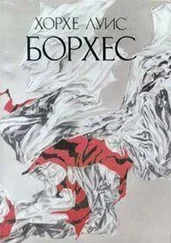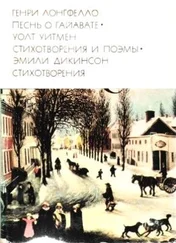Уолт Уитмен - The Wound Dresser
Здесь есть возможность читать онлайн «Уолт Уитмен - The Wound Dresser» — ознакомительный отрывок электронной книги совершенно бесплатно, а после прочтения отрывка купить полную версию. В некоторых случаях можно слушать аудио, скачать через торрент в формате fb2 и присутствует краткое содержание. Жанр: foreign_prose, История, foreign_edu, foreign_antique, на английском языке. Описание произведения, (предисловие) а так же отзывы посетителей доступны на портале библиотеки ЛибКат.
- Название:The Wound Dresser
- Автор:
- Жанр:
- Год:неизвестен
- ISBN:нет данных
- Рейтинг книги:4 / 5. Голосов: 1
-
Избранное:Добавить в избранное
- Отзывы:
-
Ваша оценка:
- 80
- 1
- 2
- 3
- 4
- 5
The Wound Dresser: краткое содержание, описание и аннотация
Предлагаем к чтению аннотацию, описание, краткое содержание или предисловие (зависит от того, что написал сам автор книги «The Wound Dresser»). Если вы не нашли необходимую информацию о книге — напишите в комментариях, мы постараемся отыскать её.
The Wound Dresser — читать онлайн ознакомительный отрывок
Ниже представлен текст книги, разбитый по страницам. Система сохранения места последней прочитанной страницы, позволяет с удобством читать онлайн бесплатно книгу «The Wound Dresser», без необходимости каждый раз заново искать на чём Вы остановились. Поставьте закладку, и сможете в любой момент перейти на страницу, на которой закончили чтение.
Интервал:
Закладка:
As to rations, the army here at present seems to be tolerably well supplied, and the men have enough, such as it is. Most of the regiments lodge in the flimsy little shelter tents. A few have built themselves huts of logs and mud, with fireplaces.
I might give a long list of special cases, interesting items of the wounded men here, but have not space.
Left Falmouth, January, 1863, by Aquia creek railroad, and so on Government steamer up the Potomac. Many wounded were with us on cars and boat. The cars were just common platform ones. The railroad journey of ten or twelve miles was made mostly before sunrise. The soldiers guarding the road came out from their tents or shebangs of bushes with rumpled hair and half-awake look. Those on duty were walking their posts, some on banks over us, others down far below the level of the track. I saw large cavalry camps off the road. At Aquia Creek Landing were numbers of wounded going North. While I waited some three hours, I went around among them. Several wanted word sent home to parents, brothers, wives, etc., which I did for them (by mail the next day from Washington). On the boat I had my hands full. One poor fellow died going up.
Am now (January, February, etc., 1863) in and around Washington, daily visiting the hospitals. Am much in Campbell, Patent-office, Eighth-street, H-street, Armory-square, and others. Am now able to do a little good, having money (as almoner of others home), and getting experience. I would like to give lists of cases, for there is no end to the interesting ones; but it is impossible without making a large volume, or rather several volumes. I must, therefore, let one or two days’ visits at this time suffice as specimens of scores and hundreds of subsequent ones, through the ensuing spring, summer, and fall, and, indeed, down to the present week.
Sunday, January 25.—Afternoon and till 9 in the evening, visited Campbell hospital. Attended specially to one case in Ward I, very sick with pleurisy and typhoid fever, young man, farmer’s son—D. F. Russell, Company E, Sixtieth New York—down-hearted and feeble; a long time before he would take any interest; soothed and cheered him gently; wrote a letter home to his mother, in Malone, Franklin county, N. Y., at his request; gave him some fruit and one or two other gifts; enveloped and directed his letter, etc. Then went thoroughly through Ward 6; observed every case in the ward (without, I think, missing one); found some cases I thought needed little sums of money; supplied them (sums of perhaps thirty, twenty-five, twenty, or fifteen cents); distributed a pretty bountiful supply of cheerful reading matter, and gave perhaps some twenty to thirty persons, each one some little gift, such as oranges, apples, sweet crackers, figs, etc., etc., etc.
Thursday, January 29.—Devoted the main part of the day, from 11 to 3.30 o’clock, to Armory-square hospital; went pretty thoroughly through Wards F, G, H, and I—some fifty cases in each ward. In Ward H supplied the men throughout with writing paper and a stamped envelope each, also some cheerful reading matter; distributed in small portions, about half of it in this ward, to proper subjects, a large jar of first-rate preserved berries; also other small gifts. In Wards G, H, and I, found several cases I thought good subjects for small sums of money, which I furnished in each case. The poor wounded men often come up “dead broke,” and it helps their spirits to have even the small sum I give them. My paper and envelopes all gone, but distributed a good lot of amusing reading matter; also, as I thought judicious, tobacco, oranges, apples, etc. Some very interesting cases in Ward I: Charles Miller, Bed No. 19, Company D, Fifty-third Pennsylvania, is only sixteen years of age, very bright, courageous boy, left leg amputated below the knee; next bed below him, young lad very sick—gave the two each appropriate gifts; in the bed above also amputation of the left leg—gave him a part of a jar of raspberries; Bed No. 1, this ward, gave a small sum also; also to a soldier on crutches, sitting on his bed near.
Evening, same day.—Went to see D. F. R., Campbell hospital, before alluded to; found him remarkably changed for the better—up and dressed (quite a triumph; he afterwards got well and went back to his regiment). Distributed in the wards a quantity of note-paper and forty or fifty, mostly paid, envelopes, of which the men were much in need; also a four-pound bag of gingersnaps I bought at a baker’s in Seventh street.
Here is a case of a soldier I found among the crowded cots in the Patent hospital—(they have removed most of the men of late and broken up that hospital). He likes to have some one to talk to, and we will listen to him. He got badly wounded in the leg and side at Fredericksburg that eventful Saturday, 13th December. He lay the succeeding two days and nights helpless on the field, between the city and those grim batteries, for his company and his regiment had been compelled to leave him to his fate. To make matters worse, he lay with his head slightly down hill, and could not help himself. At the end of some fifty hours he was brought off, with other wounded, under a flag of truce.
We ask him how the Rebels treated him during those two days and nights within reach of them—whether they came to him—whether they abused him? He answers that several of the Rebels, soldiers and others, came to him, at one time and another. A couple of them, who were together, spoke roughly and sarcastically, but did no act. One middle-aged man, however, who seemed to be moving around the field among the dead and wounded for benevolent purposes, came to him in a way he will never forget. This man treated our soldier kindly, bound up his wounds, cheered him, gave him a couple of biscuits gave him a drink of whiskey and water, asked him if he could eat some beef. This good Secesh, however, did not change our soldier’s position, for it might have caused the blood to burst from the wounds where they were clotted and stagnated. Our soldier is from Pennsylvania; has had a pretty severe time; the wounds proved to be bad ones. But he retains a good heart, and is at present on the gain.
It is not uncommon for the men to remain on the field this way, one, two, or even four or five days.
I continue among the hospitals during March, April, etc., without intermission. My custom is to go through a ward, or a collection of wards, endeavoring to give some trifle to each, without missing any. Even a sweet biscuit, a sheet of paper, or a passing word of friendliness, or but a look or nod, if no more. In this way I go through large numbers without delaying, yet do not hurry. I find out the general mood of the ward at the time; sometimes see that there is a heavy weight of listlessness prevailing, and the whole ward wants cheering up. I perhaps read to the men, to break the spell, calling them around me, careful to sit away from the cot of any one who is very bad with sickness or wounds. Also I find out, by going through in this way, the cases that need special attention, and can then devote proper time to them. Of course I am very cautious, among the patients, in giving them food. I always confer with the doctor, or find out from the nurse or ward-master about a new case. But I soon get sufficiently familiar with what is to be avoided, and learn also to judge almost intuitively what is best.
I do a good deal of writing letters by the bedside, of course—writing all kinds, including love letters. Many sick and wounded soldiers have not written home to parents, brothers, sisters, and even wives, for one reason or another, for a long, long time. Some are poor writers; some cannot get paper and envelopes; many have an aversion to writing, because they dread to worry the folks at home—the facts about them are so sad to tell. I always encourage the men to write, and promptly write for them.
Читать дальшеИнтервал:
Закладка:
Похожие книги на «The Wound Dresser»
Представляем Вашему вниманию похожие книги на «The Wound Dresser» списком для выбора. Мы отобрали схожую по названию и смыслу литературу в надежде предоставить читателям больше вариантов отыскать новые, интересные, ещё непрочитанные произведения.
Обсуждение, отзывы о книге «The Wound Dresser» и просто собственные мнения читателей. Оставьте ваши комментарии, напишите, что Вы думаете о произведении, его смысле или главных героях. Укажите что конкретно понравилось, а что нет, и почему Вы так считаете.











